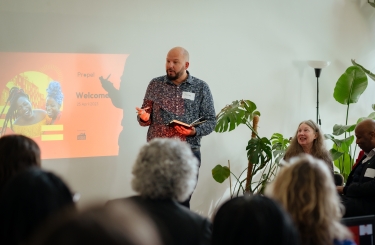As investors, we have a tendency to follow the path well-trodden. Investing in the tried and tested is a surefire way to yield steady returns, financial or social. And returns are the business of investing.
Without the initial risk, the gamble, the experiment, we are doomed to learn little new.
Too often, we see funders turn their noses up at those deemed on the riskier end of the spectrum, preferring instead to invest where the evidence has already been assembled.
It leaves us with a chicken and egg situation: if funders are unwilling to experiment and take risks, how do we expect to gather the evidence for others to invest in? And therefore, how do we expect to scale up vital and viable interventions for those that need them?
This is no easy market for risk. But the socio-economic conditions currently facing vulnerable people across the country necessitate funders to reconsider their appetite for risk, for the trying and the testing.
But what does that trying and testing look like in practice?
That is Commonweal Housing’s modus operandi: to seek housing-based solutions to social injustices facing those on the margins, those too often overlooked by policy and practice, and therefore slip between the cracks. They are those that we need to take risks on.
Commonweal works with partner organisations across a range of sectors to support vulnerable people facing injustices, which they often alert us to. In 2016, anti-poverty charity Quaker Social Action brought the housing injustices of young adult carers – unpaid carers aged 16-25 – to our attention.
Research conducted by Commonweal Housing and Quaker Social Action showed that there was no specific housing provision for young adult carers. The research indicated that a shared housing solution may provide young tenants with a level of independence and support simultaneously, to encourage better outcomes in terms of wellbeing, education and employment.
Indeed, the data demonstrates just how vital an intervention which includes both housing and support may be for young adult carers. Young adult carers are three times as likely to be NEET (not in education, employment or training) compared to other young people, and of the employment they do access, it tends to be of a lower pay grade, resulting in more than half of young adult carers ‘usually’ or ‘always’ worrying about the cost-of-living crisis and things becoming more expensive.
They are also at a far greater risk of homelessness, but local authorities, care services and housing associations often overlook this element of their long-term support options.
To test how housing and support may benefit the life opportunities of young adult carers, we worked in partnership with Quakers Social Action to set up the pilot project ‘Move on Up’.
Run across four properties in East London between 2017-2023, Move on Up provided shared housing for young adult carers aged between 18 – 24 years, with up to 24 months’ individual support depending on their individual wellbeing needs.
The impact Move on Up had on the lives of our tenants was significant. An independent evaluation showed considerable improvements in the relationships with the young adult carers’ families, with improvements to accessing education, finding employment and refining their future plans. Other outcomes included a better understanding of their own needs and aspirations, improved independent living skills and increased social participation and friendships.
None of this would have been possible without accessing social investment and taking a risk on an overlooked group.
Since the conclusion of Move on Up, Commonweal has commissioned more research into the housing options for young adult carers, further outlining the perils facing these vulnerable young people and the impact it may have on youth homelessness.
Since then, the winds of change seem to be blowing for young carers and young adult carers. Earlier this month we attended the All-Party Parliamentary Group’s inquiry report launch at the House of Lords where the lack of housing options and identification for young adult carers was identified as contributing to youth homelessness with calls for improved identification and increased access to support for young carers.
This is now a key policy focus for Commonweal as we continue to bang the housing drum for this vulnerable group and seek to influence both policy and practice. And while we may not be there yet, the light has been shone on the issue where it may otherwise have gone under the radar, and this is because of our, and our partners' commitment to the trying and testing, and investors' willingness to take a risk.


